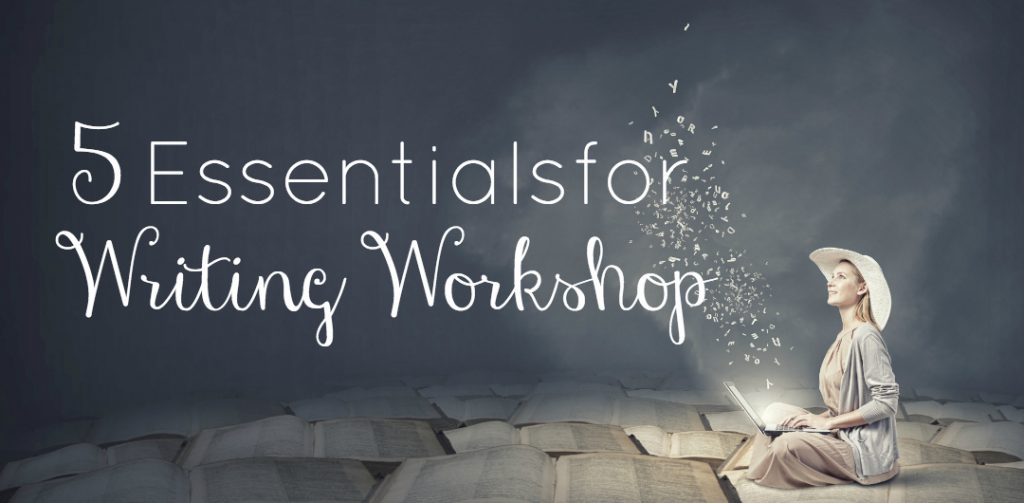Teachers are masters of winging it. We are resourceful when put on the spot, it’s what makes this profession an art. Not only are teachers resourceful they are inventive, they have personality, values, ideas, passions, and creativity. All of this has a huge impact on the subjects we teach and will always seep through the required curriculum and standards, rightfully so! So what about when teaching writing? If a teacher were to “wing it” and bring their own resourcefulness into teaching this subject area what would they need to know in order to do it successfully? Read on to find out…
Teachers of writing need a firm grasp on the heart of teaching writing. Once you know the heart you can fill the rest in with YOU!
I have a secret to confess…
Although I’ve read Lucy Calkins cover to cover and many other books about teaching writing I don’t follow them page by page, lesson by lesson, I follow the heart. What is the heart of writing workshop then?
The basic structure of a writing lesson is this:
- Mini-lesson (10 min. or less)
- Model (with your own writing/mentor texts and using your own experiences as a writer)
- Practice (with partners and your guidance in the meeting area)
- Work time (most of the workshop should be spent doing this)
- Share time (allow students to reflect, you can teach some more here too)
They say structure sets you free and I completely agree. Having these routines every day allows me to fill in the segments with my own creative ideas and base my teaching on the needs of my students.
Students and teachers need time to write and story tell. Yes, teachers need to make time to write and enjoy the process so that they can share their stories with their students. Students need lots of time to write every day. The goal is to get your students begging you to give them more time. How do you do that? Well read on…
Students must feel the process of writing is worthwhile and important in their lives. They must feel their writing matters and that others in the classroom will show interest and excitement for what they put on the page even if it is not very good. Here are some things you can do to make students feel their writing is valuable….
- Refer to students as writers and authors. Honestly, in this day and age they truly are!
- Talk up the big publishing/release date throughout each of your units. There are many ways to publish student writing. Your class could enter a writing contest. You could get parents to type up the pieces and combine them into one e-book and post it on your website. You could even just staple the pages together, slap a laminated cover on it and put it in the class library with all the other books that have been published by previous classes!
- Talk about the parts of your students writing frequently. You must make time to read student writing if you are to do this! You don’t have to read every single word they write to do it successfully either.
We need to be honest about the roadblocks all writers face. When a writer plans their work it takes a lot of effort and thought, when a writer begins to write their first draft, it may be crap, yes I use this word with my sixth graders when talking about my own writing from time to time.
Be honest with your students about the process. Tell them these things:
- Writing is being willing to take the risk to put an idea on the page even if it doesn’t sound or look all they great at first. This is so key, students need to be let in on this secret, even famous writers don’t do it right the first time!
- Writers spend most of their time going back and forth between the drafting and the revision process. Many students write a draft and say they are done. Urge students to live in their draft and stew on it for days, because that is what real authors do!
Remember cookie cutter recipe book lessons will not produce powerful writing in your class. What will is being honest about the process, it take practice, a willingness to take risks, constant rereading and tweaking.
Teachers must live the lives of writers alongside their students. Teachers must build a community of writers who read their writing like it is golden, who listen intently to others’ stories and discover the world around them through the writing process. This video by Lucy Calkins is a MUST see for teachers and a MUST show for your class. It encapsulates the heart of writing.
I hope that I have armed you with the confidence to teach writing workshop your way. You don’t always have to follow the book, do it your way, own your lessons and always remember the heart of writing workshop: structure, time, audience, honesty and passion.
Still looking for some resources? Check these out
Related
Whole Class Novels Reading Workshop Style
The Reading and Writing Project Resources






0 Comments